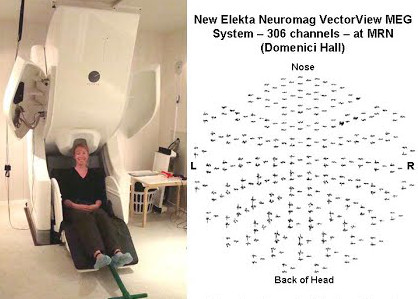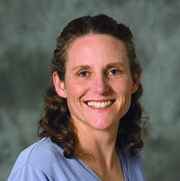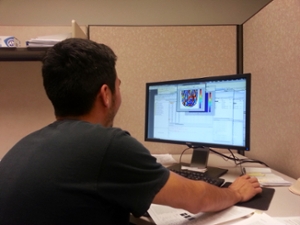Mentor-Mentee relationships: Dr. Julia Stephen & Alfredo Bolanos
November 19, 2015 - Yadeeh Sawyer
Two sides of the same coin
This week, we spoke with Dr. Julia Stephen and Alfredo Bolanos about various aspects within a mentor-mentee relationship.
(Click HERE for more info on our re-occurring blog topics.)


The Post-Baccalaureate Research and Education Program (PREP) at UNM provides students with the opportunity to gain research experience in the biomedical sciences and prepare them for graduate school. They have a pool of researchers interested in being mentors for this program, one of whom is Dr. Julia Stephen with the Mind Research Network. Once Alfredo was admitted to the PREP program, he met with a few mentors within his field of interest. What drew Alfredo to Dr. Stephen was “her overall outlook and teaching style. She seemed nice and humble, which I thought would be a good match for me.”
Finding an enthusiastic mentee, and a mentor that matches your needs can be challenging. So, we asked both Dr. Stephen and Alfredo what advice they have for undergraduates looking for a mentor. The first thing mentioned was to just look for one, go for it, and reach out to individuals who are doing research in the field you are interested in “even if it’s daunting.” Look at the potential mentor’s website (to see what they are doing) and publication list (for their track record, especially if interested in going to grad school). “Contact faculty directly to see if there are opportunities for participating in their lab” said Dr. Stephen. After contacting potential mentors, “go with someone you feel comfortable with, you are going to have a relationship with this person, and they are going to teach you about science, but also help you get to the next level” said Alfredo. Since joining Dr. Stephen’s lab, Alfredo has gained technical experience with programs such as MATLAB, and is more able to answer scientific questions, as a result of the hands-on guidance provided by Dr. Stephen. He is now in the write-up phase of his research, which is a very involved process that requires literature review and “seeing how your results fit in to [what is already published].”

Once you’ve established a connection, Alfredo suggests keeping communication as open as possible. “Even if you think it is something simple that is bothering you, it’s better to have it out there than to hold it in. Even though they are your mentor and have a more knowledge, they are still human.” Dr. Stephen added that it is important to include the mentee in to the research. “It doesn’t matter [what level they are at], they most likely haven’t done this specific type of research. You can always find a piece of research for somebody to work on. This is a way for the student to take ownership of the project, giving them a sense of inclusion, not just a cog in the wheel.”
Having a sustainable relationship is rewarding for many reasons. “The mentors have more resources than you do, so they can help you work through your problems” said Alfredo. From the mentors perspective, “seeing success and development of the individual. Being able to see the transition from the initial frustration to the excitement and ownership of a project is great to see!” Along with that comes an ownership of the project, a much deeper appreciation for the research, but with respect to the work and the subtleties, and an understanding that mistakes are OK, they are part of the research process. We do what we can with the mistakes, as long as they are honest mistakes, and we move forward.
Dr. Stephen and Alfredo’s mentor-mentee relationship consisted of Alfredo’s work on various projects within Dr. Stephen’s lab. Dr. Stephen proudly stated that “he’s become a fellow lab member over the past year, working with us on his project, but also with others on smaller side projects. He is integrated like a graduate student with the lab.” To accomplish this integration, Alfredo finds that communication is key. “This lets me do work on my own, as well as keep [Dr. Stephen] in the loop of what I’m doing.” He added that this relationship extends beyond the lab and this type of relationship is always growing, “either one or the other of us has new knowledge, experience, and skills, so it’s about planning ahead to the next step.”
